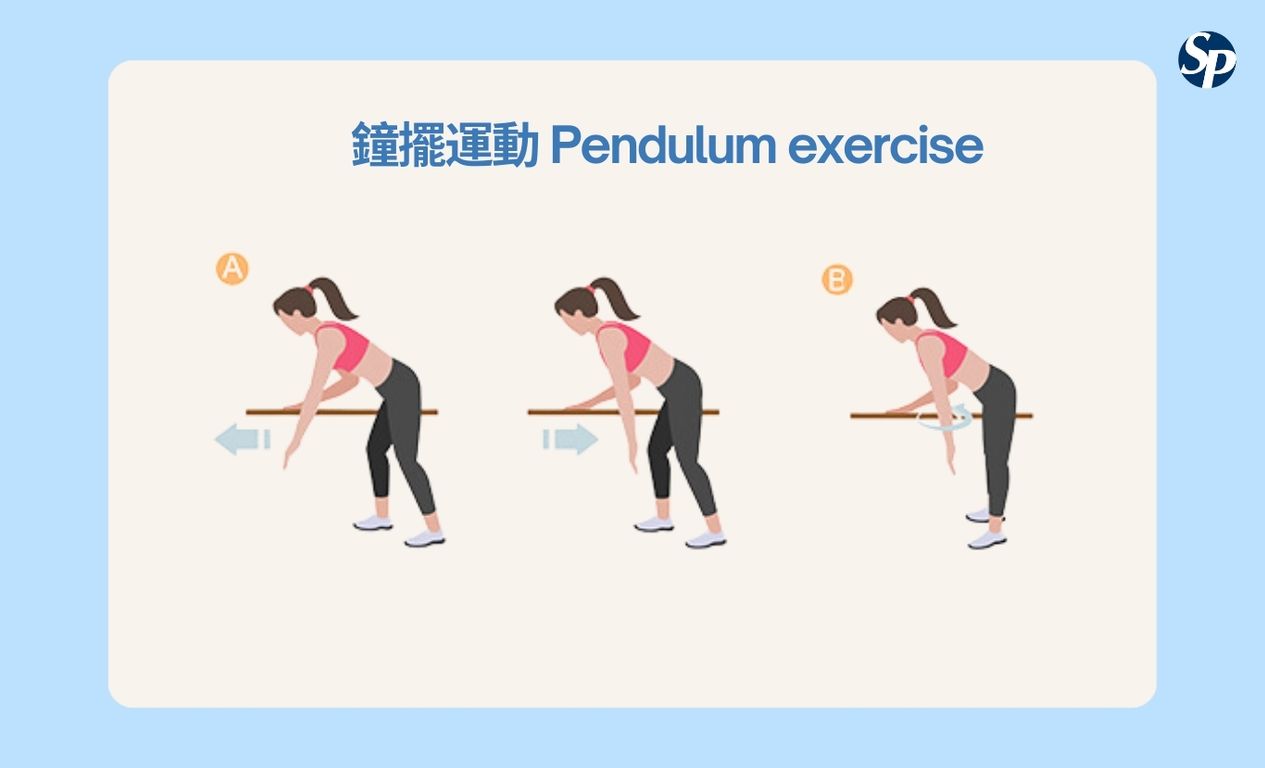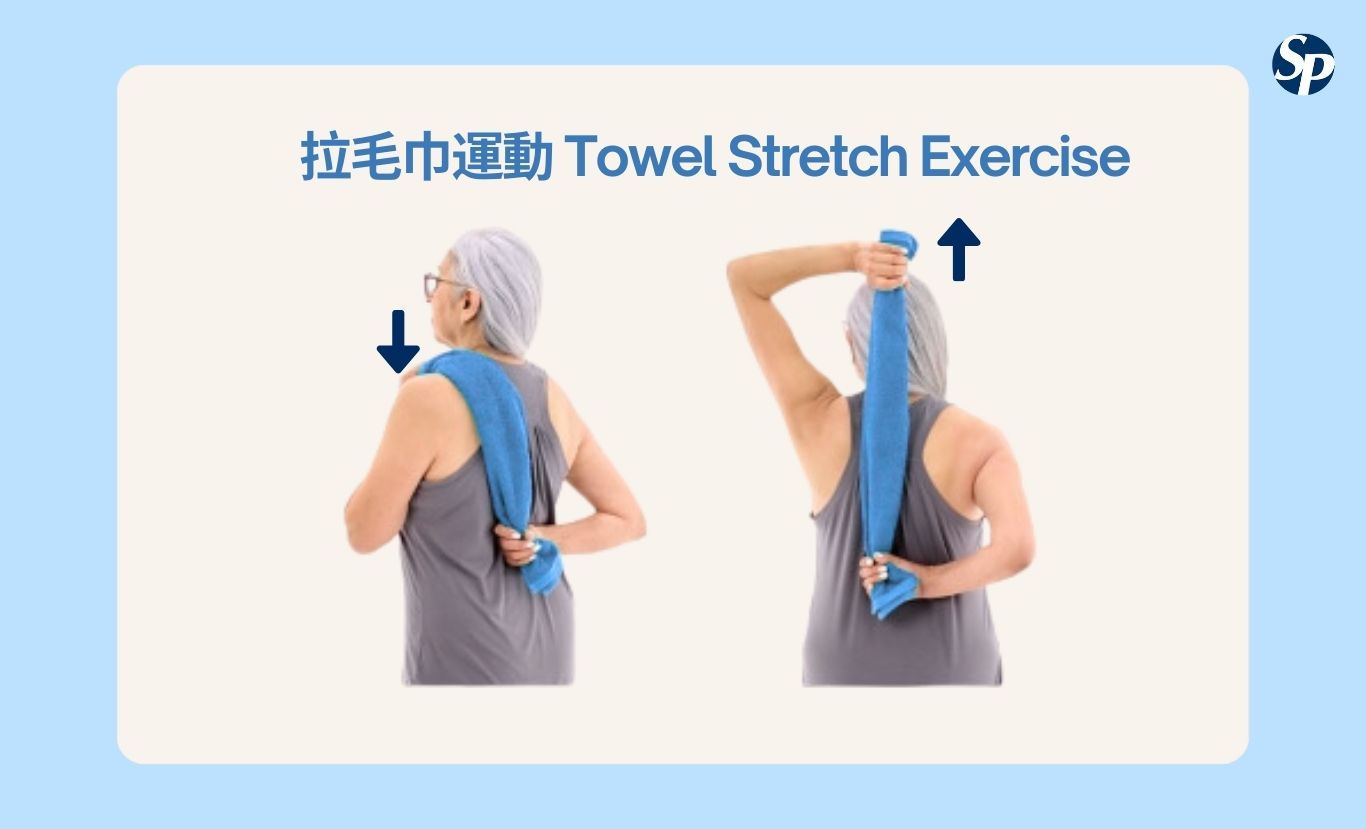




Health Information



3 Simple Exercises to Improve Frozen Shoulder - Reclaim Your Range of Motion

3 Simple Exercises to Improve Frozen Shoulder - Reclaim Your Range of Motion (by Sportsperformance Physiotherapy)
Frozen shoulder (adhesive capsulitis) can be a debilitating condition to live with, but the right exercises can help improve your mobility and reduce pain. Here are 3 exercises that you can do to improve frozen shoulder.
Pendulum exercise:
- Relax your shoulders. Stand and lean over slightly, allowing your affected arm to hang down.
- Swing the arm in a small circle — about a foot in diameter.
- Perform 10 revolutions in each direction, once a day.
- As your symptoms improve, increase the diameter of your swing, but never force it.
- When you're ready for more, increase the stretch by holding a light weight (three to five pounds) in the swinging arm.

Towel Stretch Exercise:
- Hold a towel behind your head with the unaffected arm as if you are going to dry your back.
- Reach behind your back and grab the towel with the affected arm and do the motion of drying your back. Move the hands up and down. Raise the hand on the affected side as much as possible until it is tight. Then use the other hand to pull up until the shoulder on the affected side feels tight, avoid sudden pull
- Repeat 3 to 5 times. If you can, repeat these steps on your other shoulder.

Finger walk:
- Face a wall and stand with an arm's length away
- With your elbow slightly bent, slowly walk your fingers of the affected arm up the wall, until you've raised your arm to shoulder level, or as far as you can within tolerable pain limits
- Maintain 10 - 15 seconds. Slowly lower the arm.
- Repeat the same exercise sideway. Perform 10 to 20 times a day.

The above exercises aim to increase the mobility of the shoulder joints, the exercise frequency and repetition shall be tolerable at all times.
To properly diagnose your shoulder's pain, you should make an appointment to seek advice from a professional physiotherapist or medical expert.
Further reading:



